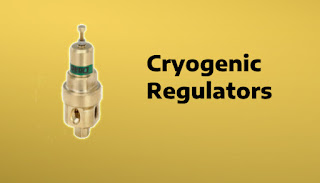Chlorine Valves - What Risks are Chlorine Valves Exposed to?
Chlorine valves are exposed to various risks referring to the chemical properties of the liquid:
Hydroscopic: In case the water content in dry chlorine is more than 50 parts per million, ferric chlorides (CL3F3) and hydrochloric acid (HCL) are formed. The HCL is highly corrosive and has the potential to damage the piping system that are made from carbon steel while the CL3F3 can create problems for seating surfaces of Teflon.
Also, the liquid is classified as a TIH – Toxic by Inhalation and this property clearly indicates the critical nature of the substance and the job of the valves to keep the liquid inside without any leaks from bonnet joints, packing, and castings.
Inflammability: Chlorine, by itself is neither flammable nor explosive. However, it may support combustion under specific conditions. Gas, as well as liquid chlorine, tend to react explosively with hydrocarbon-based lubricants. The valves must be prepared and properly cleaned for servicing the substance packed within. In addition, proper care must be taken while packaging and transporting these cylinders.
Dual Phase Flow: These are known to cause cavitation and flashing which is problematic for valves because of the energy that is generated inside the valve could potentially damage stems and trim.
Oil and Grease: Chlorine sometimes can react explosively with organic materials including oil and grease that comes from pumps, valves, air compressors, pipe thread lubricants, or oil-diaphragm instrumentation.
Hydrogen: Chlorine if mixed with hydrogen can become potentially explosive within a specific range of concentration levels. If the cylinder is placed along with hydrogen containing cylinders, valves play an important part in securing the liquid/gas within and preventing hazardous situations.
Temperature: The volume of chlorine increases with increasing temperature. To avoid this volumetric expansion, there should be precautions that are taken to keep the temperature at a consistent and appropriate temperature.
Auto-refrigeration: When chlorine is released, it tends to escape rapidly. However, the pressure in the cylinder attempts to equalize with that of the outer atmosphere.
Valves are subjected to critical conditions which demand extra carefulness and safety standards. These chlorine valves must be bought from a reliable industrial valve dealer like Evergreen Midwest, who has been serving high quality and durable valves and regulators to the industry since 1978. Evergreen Midwest has a wide range of valves that are essentially required for critical operations. Please visit: www.evergreenmidwest.com or call 800.659.3358 to know more details. We look forward to hearing from you soon!
Source - https://www.evergreenmidwest.com/blog/2017/07/11/what-risks-are-chlorine-valves-exposed-to/





